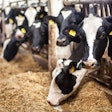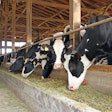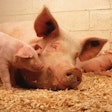
TheEnding Agricultural Trade Suppression(EATS) Act is proving to be a source of division for both the animal agriculture industry and the United States Congress.
It is so divisive that it could imperil the progress of a new bill being passed within its expected time frame.
“There’s concerns that this could actually wreck the whole farm bill process, and really just shut that down to where nothing can get done on the farm bill, if some people are very intent on bringing the EATS Act forward on the farm bill,”United Egg Producers(UEP) Senior Vice President Oscar Garrison said on September 25, during the Georgia Layer Conference.
The EATS Act challenges the constitutionality of laws such asCalifornia’s Proposition 12, which only allows the sale of pork from farms that don’t use gestation crates and eggs from farms that use cage-free laying systems.
Even though the EATS Act presently relates to the egg industry, UEP has not officially taken a position on it. He said that since because many egg producers have already installed cage-free laying systems and most major retailers have committed to only sell or serve cage-free eggs, “many feel we’re on the track for cage free ultimately in this country,” Garrison said.
Garrison learned of some of the division while attending a recent industry event in Pennsylvania. There are egg producers and also pork producers who oppose the EATS Act, “because they’ve already started making some pretty significant improvements.”
For example,Sauder’s Eggsis one Pennsylvania egg producer that has spoken out against the EATS Act.
Pork-only legislation?
Because it seems apparent to many that the egg industry is on its way to an exclusive cage-free model of operation, there has been talk about making the EATS Act, something that exclusively applies to the pork industry. The National Pork Producers Council has been supportive of the EATS Act.
But Garrison said some key lawmakers, including House Agriculture Committee Chairman G.T. Thompson, R-Pennsylvania, and Senate Agriculture Committee member Chuck Grassley, R-Iowa, don’t seem to be on board with it being specific to the pork industry.
“They’re not interested in that,” Garrison said. “They want to make it across the board for all protein commodities out there, and really a lot of other things as well. So, it’s going to be interesting to watch this whole conversation play out.”




















